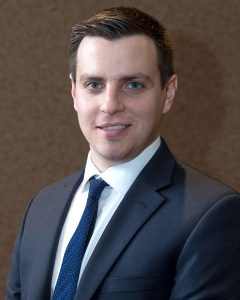Email: mwilso25@uic.edu
Phone: (312)-355-0484
Matt Wilson, Ph.D., is an Associate Director of GCI where he leads the Economic and Workforce Development program. His research interests are in place-based economic development, neighborhood change and revitalization, labor markets, and job quality.
Dr. Wilson has multiple projects examining the federal Opportunity Zone (OZ) program that aim to uncover structural shortcomings of the program to deliver equitable development. Recent research into the OZ program focuses on how to target place-based subsidies so they are not contributing to ongoing gentrification or placed in high opportunity areas that do not require subsidies to attract private market investment. His current research is examining how structural aspects of the OZ program, namely the loose zone targeting criteria and reliance on private-market actors, results in the systematic neglect of highly distressed areas and a favoring of better-off areas that represent lower-risk and higher-returns to investors.
In addition to strictly place-based policies, Dr. Wilson studies the spatial impacts of economic development programs implemented at larger scales. In a recent collaboration, he examines the extent to which COVID-19 relief for small businesses as part of the Paycheck Protection Program (PPP) reached low-income areas and minority-owned businesses. This project compares PPP loan distributions to residential mortgage and small business lending data to measure if distributions of PPP business relief funds paralleled pre-existing inequalities in residential and small business lending patterns. This paper finds that PPP lending closely paralleled existing uneven lending patterns but that policy changes during the third phase were effective in targeting lower-income areas, black borrowers, and smaller businesses. These finding suggest that relief programs such as the PPP program that rely heavily on existing institutional structures are likely to exacerbate rather than ameliorate racial and spatial inequality. However, the shifts in the third phase of PPP lending indicate that policy makers have the tools to more equitably target relief programs.
As manufacturers were forced to deal with challenges related to COVID-19, Dr. Wilson worked on a collaborative project to better understand how manufacturing serving institutions were able to assist with manufacturing facility and process redesigns to protect workers; help manufacturers with product and process design to produce personal protective equipment (PPE); and help manufacturers navigate challenges of supply chain disruptions and worker shortages. Additionally, this work has focused on the possibilities for workforce supporting institutions to pursue innovative workforce development approaches that upgrade front-line manufacturing job quality and address regional economic equity issues.
In a current collaboration, Dr. Wilson is analyzing diversity discourses present in request for proposal (RFP) responses from cities for Amazon’s second headquarters (HQ2). This project uses diversity ideology to examine how applicants for Amazon’s HQ2 present their beliefs and value systems around racial and ethnic diversity, equity, and inclusion. The analysis uncovers the ways that applicants avoid discussions of diversity, equity and inclusion; objectify racial and ethnic minority populations as a cultural input to serve the local tech workforce; and utilize stereotypes to present vague possibilities of a racially and ethnically diverse workforce.
With Dr. Teresa Cordova, Director for GCI, Dr. Wilson has produced multiple reports on conditions of joblessness and employment challenges facing young people of color in Chicago. Through highlighting the conditions of youth joblessness in Chicago, these reports resulted in new programs, policies, and appropriations for youth employment in Chicago; shifted conversations around solutions to violence from policing to employment strategies; and elevated the voices of young people to reach national media audiences.
Dr. Wilson earned his Ph.D. in City and Regional Planning from the University of North Carolina at Chapel Hill, and Master of Urban Planning and Policy (MUPP) and BA in Urban and Public Affairs degrees from the University of Illinois at Chicago.
